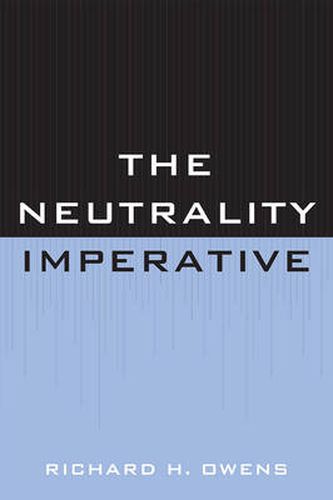Readings Newsletter
Become a Readings Member to make your shopping experience even easier.
Sign in or sign up for free!
You’re not far away from qualifying for FREE standard shipping within Australia
You’ve qualified for FREE standard shipping within Australia
The cart is loading…






The Neutrality Imperative examines the policy of neutrality that was used as an effective guiding principle in American foreign policy. Because it was such a strong and valid principle in U.S. foreign policy until WWII, it can be called the neutrality imperative.
For much of American history, neutrality was more than a preference; it was a foreign policy imperative. George Washington’s policy of neutrality provided security through peace. In the 21st century, the neutrality imperative is a valid option to achieve peace, stability, and security. In The Neutrality Imperative, author Richard H. Owens draws observations and conclusions about U.S. foreign policy from Washington to Bush and cites implications for future international conduct. This book assists in understanding the ‘what and why’ of foreign affairs, and offers a blueprint for understanding and guiding future U.S. foreign policy decisions.
$9.00 standard shipping within Australia
FREE standard shipping within Australia for orders over $100.00
Express & International shipping calculated at checkout
The Neutrality Imperative examines the policy of neutrality that was used as an effective guiding principle in American foreign policy. Because it was such a strong and valid principle in U.S. foreign policy until WWII, it can be called the neutrality imperative.
For much of American history, neutrality was more than a preference; it was a foreign policy imperative. George Washington’s policy of neutrality provided security through peace. In the 21st century, the neutrality imperative is a valid option to achieve peace, stability, and security. In The Neutrality Imperative, author Richard H. Owens draws observations and conclusions about U.S. foreign policy from Washington to Bush and cites implications for future international conduct. This book assists in understanding the ‘what and why’ of foreign affairs, and offers a blueprint for understanding and guiding future U.S. foreign policy decisions.